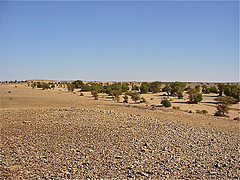by Frank Jomo
Rains in the southern African nation, which usually start between October and November, only came to several districts around the beginning of the year and some farmers have pulled up plantings due to wilting , the union said.
“Malawi’s southern region will be affected most because this is the area where rains come first,” Felix Jumbe, the union’s president, said. “The farmers who have uprooted their seedlings must be helped quickly,” he said. “We also need to plan on which crops to promote in the wake of adverse weather conditions,” Jumbe said, adding that now that rains have started, “there is hope the impact will be minimal.”
“We will carry out crop estimates sometime in April,” Secretary for Agriculture Erica Maganga said. “That is the only time we will know how much damage the rains have caused on agriculture production.”
Malawi relies on tobacco for 60 percent of its foreign exchange earnings, with tea the second-largest earner. Corn is the country’s staple food.

